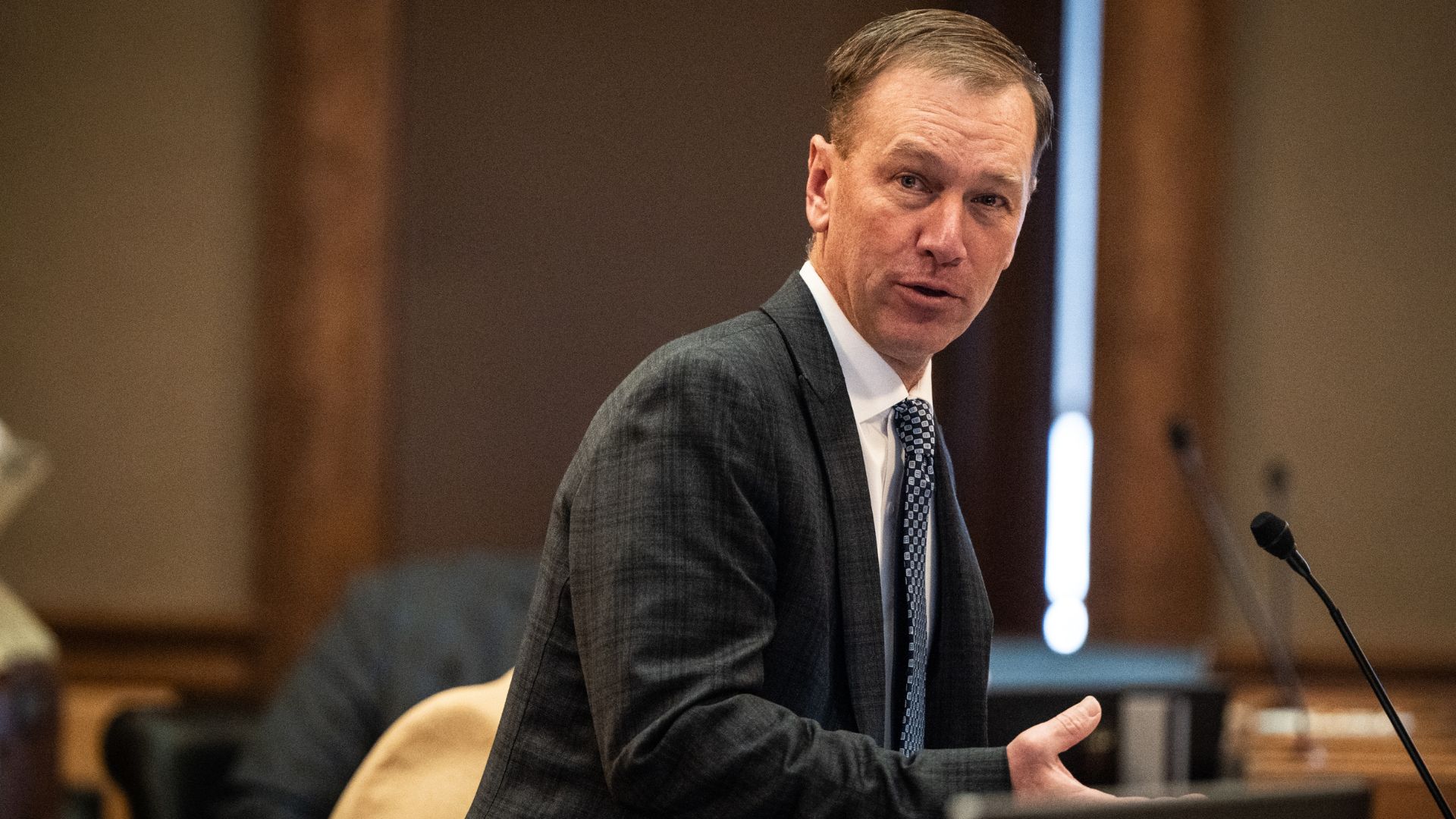Lawmakers finalize interim topics

Sen. Barry Crago, R-Buffalo — Photo by Michael Smith
BUFFALO — Lawmakers will narrow their focus on issues during a condensed interim session of the Wyoming Legislature.
Chairs of the state’s legislative committees had to go back to the drawing board after the Management Council voted in April to reduce the number of interim committee meeting days to four from the original six. The council sets the interim meeting schedule and approves topics for further study.
In voting for fewer meetings, lawmakers on the council cited the lack of interim bills considered during the 2025 general session. Fewer than half of interim bills became law this year.
During a budget session, where legislators will deliberate and pass a two-year state budget in 2026, legislation needs a two thirds vote to be considered on the floor.
Sen. Barry Crago, R-Buffalo, is a member of the management council. After the most recent legislative session that wrapped up in March, he said that he does not want to see interim committees spend a lot of time and money to study a bill if it won’t be considered in the regular session.
“Proposed legislation is expensive, whether it’s staff time or paying our legislators or travel expenses, that adds up,” he said. “Hopefully, by paring down committee days, we’ll drill down on those topics where we can build consensus on ideas that don’t have unanimous support, but we at least have support to study them and keep them moving forward.”
This year, $760,500 total is budgeted for interim topics, down from last year’s $811,000.
Finalized interim topics were posted on the Legislature’s website on May 5. The subjects outlined in the 18-page document on the website will be discussed during interim committee meetings around the state over the next several months.
The Select Federal Natural Resource Management Committee is scheduled to meet in Buffalo on Aug. 12. That committee is set to discuss potential legislative responses to federal policies, federal fire management, timber and minerals management and establishing a roadless rule, similar to one in Idaho, to manage undeveloped roadless areas in national forests.
Rep. Marilyn Connolly, R-Buffalo, is a member of the Joint Travel, Recreation, Wildlife and Cultural Resources Committee. The committee will hear from various state natural resource agencies and study ways to mitigate impacts to wildlife in industrial siting and also how to interpret a recent court ruling on corner crossing and implications for public lands access.
“In other places, (corner crossing) is more prevalent, but it will be an issue here,” Connolly said.
Crago is chairman of the Select Natural Resource Funding Committee, which reviews funding for various natural resource-related projects in the state. He is also a member of the Joint Agriculture, State and Public Lands and Water Resources Committee, Joint Judiciary Committee and Select Committee on Blockchain, Financial Technology and Digital Innovation Technology.
The judiciary committee will study mineral ownership and how to limit orphan mineral rights. Crago said that North Dakota law requires mineral owners to file a notice of ownership every so often, or the interest goes back to the surface owners, which limits instances of deceased mineral owners without heirs.
“It makes it difficult for oil, gas and mining to do business,” he said. “With our minerals in Johnson County, that’d be a big deal. It would affect a lot of people.”
The agriculture committee is set to discuss a variety of topics, such as eminent domain, irrigation district conflict management, state trust land grazing, cloud seeding and veterinary technician licensing.
The technology committee will discuss data privacy and updating current laws.
The Joint Appropriations Committee will study wildfire funding after an active fire season around the state last year. That committee, along with the Joint Revenue Committee, will study sales and use taxes and local government funding. Revenue will also look into property tax issues and Wyoming’s tax structure.
The Joint Education Committee will study several topics, including school discipline, higher education and career and technical education, charter school governance and teacher recruitment and retention. The Select Committee on School Facilities will respond to a recent court decision in which a judge ruled the state is underfunding its public schools and study charter school facility costs.
Another select committee will work on the recalibration of school funding, which occurs every five years.
Joint Corporations, Elections and Political Subdivisions will review election legislation and look into utility costs, workforce housing, emergency services and 911, as well as public records laws and associated costs.
The Joint Minerals, Business and Economic Development committee will study nuclear energy and the Wyoming Energy Authority’s Energy Matching Funds program, in addition to other topics.
The Joint Transportation, Highways and Military Affairs committee will discuss reports from the Wyoming Department of Transportation, including work zone safety.
The Joint Labor, Health and Social Services committee will study maternal care deserts in the state, as well as emergency services and expanding access to traditional medicine. Connolly said she is looking forward to seeing a naturopathic licensure process be discussed in the state.
A full list of interim topics and a meeting schedule is available at wyoleg.gov. Legislators will convene for the budget session in February, 2026.
This story was published on May 15, 2025.








